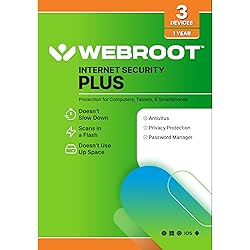Best Antivirus for Data Privacy: Essential Protection for Your Digital Life
With growing cybersecurity threats, choosing the best antivirus for data privacy is more crucial than ever. Our personal and professional data are prime targets for cybercriminals, making robust antivirus software an essential layer of defense. In today’s digital-centric world, selecting a privacy-focused antivirus does more than just block viruses—it helps safeguard sensitive files, prevents identity theft, and keeps your online activities confidential.
—
Why Data Privacy Should Drive Your Antivirus Decision
The primary reason to select the best antivirus for data privacy is straightforward: cyberattacks are increasingly sophisticated, often designed to steal, exploit, or ransom your private information. Attackers target everything from banking details and personal photos to business records and login credentials. Traditional antivirus software tackles viruses and malware, but a privacy-first antivirus provides deeper protection, preventing unauthorized data access, blocking trackers, and monitoring suspicious activity in real time.
The Value of Data Privacy in the Modern Landscape
– Personal Protection: Your identity, banking details, and private photos are coveted by hackers.
– Professional Security: Small businesses face steep losses if customer or proprietary data is leaked.
– Legal & Regulatory Compliance: Many sectors must follow regulations such as GDPR or HIPAA, making data privacy non-negotiable.
—
Key Features to Look for in Privacy-Focused Antivirus Solutions
Not all cybersecurity products are created equal. When prioritizing data privacy alongside malware protection, look for these essential features:
Advanced Malware and Ransomware Detection
A top antivirus for data privacy should protect you from viruses, spyware, worms, trojans, and most importantly, ransomware. Heuristic and behavioral detection use AI to spot suspicious activity even if the specific threat is new or unknown.
Integrated VPN and Web Monitoring
The combination of antivirus with a Virtual Private Network (VPN) enables private, anonymous browsing. Effective web monitoring can alert users to phishing attempts, malicious downloads, and tracking cookies trying to harvest data.
Data Encryption & Secure File Shredding
True protection means sensitive files aren’t only kept safe—they should be encrypted and, when deleted, rendered unrecoverable by secure file shredders.
Identity Theft Protection
Some premium antivirus suites include dark web scanning for breached personal information, fraud alerts, and credit monitoring—a must for those who value their privacy.
—
Leading Antivirus Software for Data Privacy in 2024
Here’s a breakdown of top contenders for best antivirus for data privacy, tailored for individuals, families, and small businesses:
Bitdefender Total Security
Renowned for its multi-layer ransomware and web protection, Bitdefender also stands out with a built-in VPN, anti-tracker technologies, and microphone/webcam controls. Its minimal performance impact makes it suitable for any device.
Norton 360 with LifeLock
Norton’s suite integrates real-time threat detection with a full-featured VPN and privacy monitor. LifeLock service adds in-depth identity theft protection, making it a strong contender for anyone concerned about personal data breaches.
McAfee Total Protection
McAfee combines antivirus rigor with encrypted storage and secure file deletion. Its Identity Protection Service checks the dark web for your leaked info, sending alerts in near real time.
Kaspersky Premium
Kaspersky is lauded for superb malware detection and privacy tools, including webcam protection and a private browsing feature to block tracking scripts.
Trend Micro Maximum Security
With strong AI-driven malware scanning and anti-phishing, Trend Micro provides social networking protection, an integrated password manager, and a pay-guard for safer online banking.
—
How Antivirus Enhances Data Privacy: Practical Examples
Secure Online Transactions
A privacy-focused antivirus encrypts personal data during online banking, blocking info-stealing trojans and rootkits.
Protection Against Phishing
Solutions with anti-phishing and anti-tracking capabilities ensure you don’t unwittingly give away credentials or personal data.
Privacy Shield for Remote Work
With more remote workers than ever, having centralized data privacy features, like secure file sharing and cloud integration, is key to protecting confidential documents—even across distributed teams.
—
Tips for Maximizing Your Antivirus for Data Privacy
– Update Regularly: Ensure software is always current to guard against new threats.
– Enable All Privacy Tools: Use the VPN, password manager, and webcam blockers provided.
– Customize Privacy Settings: Tweak privacy configurations (e.g., data collection, webcam access) for heightened control.
– Educate Your Team: If you’re in charge of a small business, train your staff on safe computing and data privacy basics.
—
Frequently Asked Questions: Best Antivirus for Data Privacy
Q1: What makes an antivirus “good” for data privacy?
A: An antivirus suited for privacy should offer strong malware protection, encryption tools, anti-tracking, identity theft monitoring, and secure deletion features.
Q2: Do privacy-focused antivirus solutions impact system performance?
A: Leading solutions are optimized to run efficiently in the background, with minimal impact on device speed or performance.
Q3: Is a built-in VPN necessary for privacy management?
A: While not mandatory, a VPN significantly improves privacy and anonymity, especially on public Wi-Fi or when masking online activity.
Q4: Can antivirus software prevent identity theft entirely?
A: While no solution is foolproof, quality antivirus with identity theft alerts and monitoring dramatically reduces the risk.
Q5: Are privacy tools within antivirus suites suitable for businesses?
A: Yes, many offer centralized management, compliance support, and advanced controls ideal for small business environments.
Q6: Do free antivirus programs offer sufficient data privacy protection?
A: Free versions provide basic malware defense but typically lack advanced privacy tools such as VPNs or data breach monitoring.
—
Conclusion: Make Data Privacy Your Top Antivirus Priority
In an era where cyber threats target every facet of our digital lives, prioritizing the best antivirus for data privacy is an investment in security—and peace of mind. Whether you’re an individual user, remote worker, or business owner, select a multi-layered solution that not only stops viruses but also keeps sensitive data private, secure, and beyond the reach of hackers.
Takeaway:
Don’t settle for minimal protection—choose an antivirus designed to actively protect data privacy, and take control of your digital safety today.

